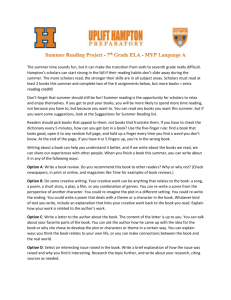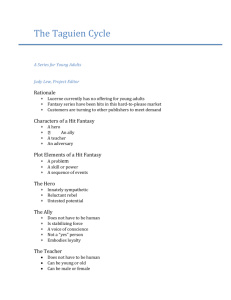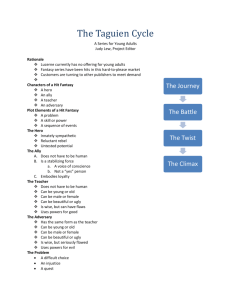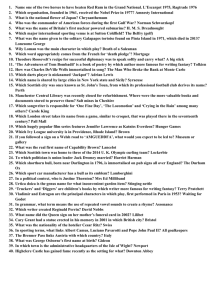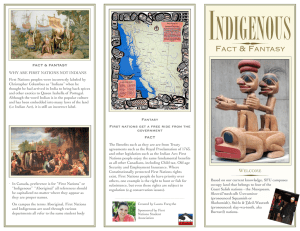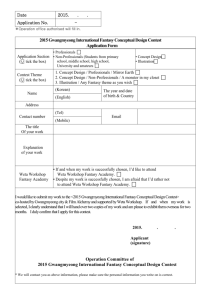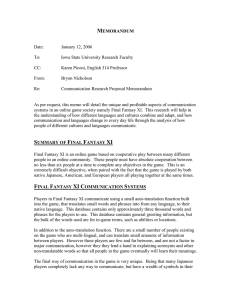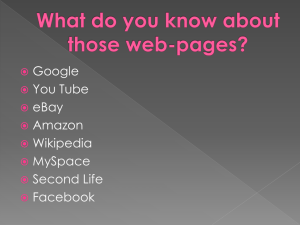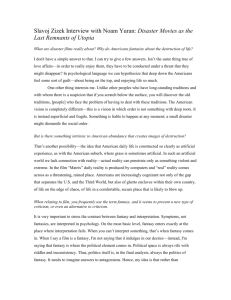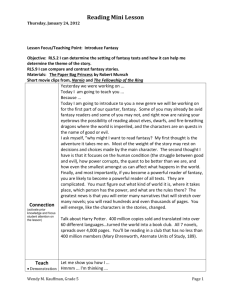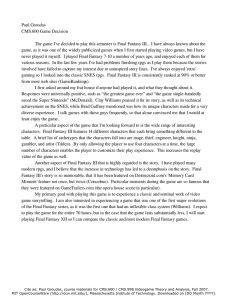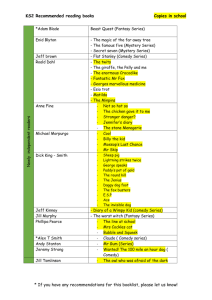ELA Summer Reading Assignment for Incoming 6th graders The
advertisement
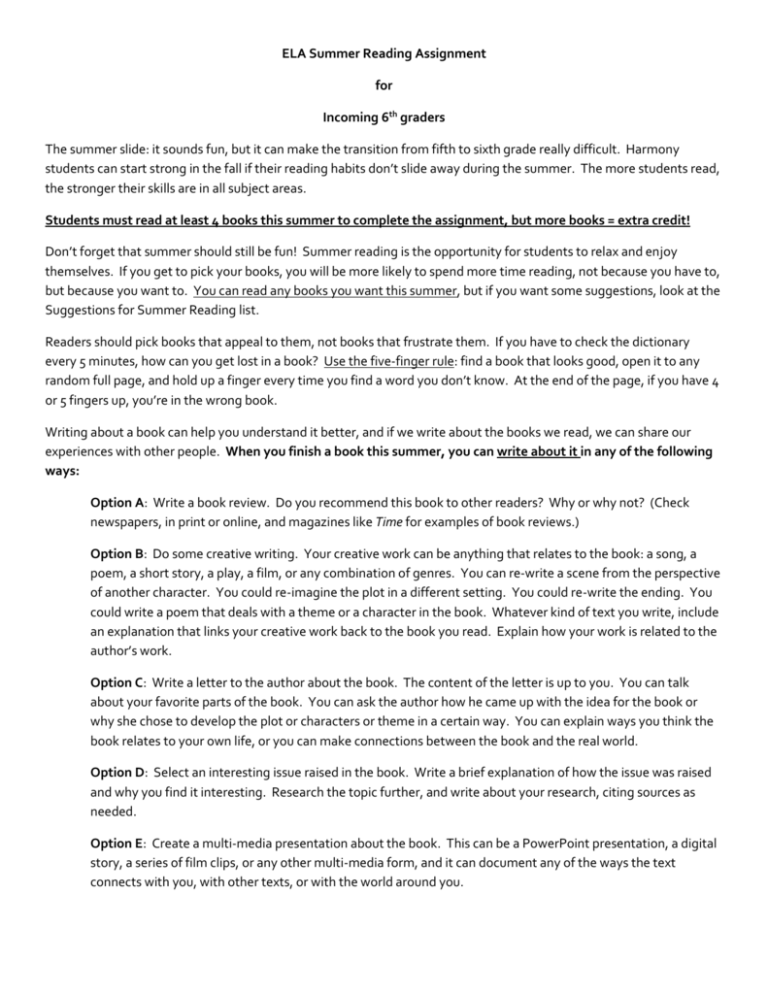
ELA Summer Reading Assignment for Incoming 6th graders The summer slide: it sounds fun, but it can make the transition from fifth to sixth grade really difficult. Harmony students can start strong in the fall if their reading habits don’t slide away during the summer. The more students read, the stronger their skills are in all subject areas. Students must read at least 4 books this summer to complete the assignment, but more books = extra credit! Don’t forget that summer should still be fun! Summer reading is the opportunity for students to relax and enjoy themselves. If you get to pick your books, you will be more likely to spend more time reading, not because you have to, but because you want to. You can read any books you want this summer, but if you want some suggestions, look at the Suggestions for Summer Reading list. Readers should pick books that appeal to them, not books that frustrate them. If you have to check the dictionary every 5 minutes, how can you get lost in a book? Use the five-finger rule: find a book that looks good, open it to any random full page, and hold up a finger every time you find a word you don’t know. At the end of the page, if you have 4 or 5 fingers up, you’re in the wrong book. Writing about a book can help you understand it better, and if we write about the books we read, we can share our experiences with other people. When you finish a book this summer, you can write about it in any of the following ways: Option A: Write a book review. Do you recommend this book to other readers? Why or why not? (Check newspapers, in print or online, and magazines like Time for examples of book reviews.) Option B: Do some creative writing. Your creative work can be anything that relates to the book: a song, a poem, a short story, a play, a film, or any combination of genres. You can re-write a scene from the perspective of another character. You could re-imagine the plot in a different setting. You could re-write the ending. You could write a poem that deals with a theme or a character in the book. Whatever kind of text you write, include an explanation that links your creative work back to the book you read. Explain how your work is related to the author’s work. Option C: Write a letter to the author about the book. The content of the letter is up to you. You can talk about your favorite parts of the book. You can ask the author how he came up with the idea for the book or why she chose to develop the plot or characters or theme in a certain way. You can explain ways you think the book relates to your own life, or you can make connections between the book and the real world. Option D: Select an interesting issue raised in the book. Write a brief explanation of how the issue was raised and why you find it interesting. Research the topic further, and write about your research, citing sources as needed. Option E: Create a multi-media presentation about the book. This can be a PowerPoint presentation, a digital story, a series of film clips, or any other multi-media form, and it can document any of the ways the text connects with you, with other texts, or with the world around you. Some Suggestions for Sixth Grade Summer Reading (see http://www.haisln.org/recommendedreadinglists.html for even more suggestions) Series The Artemis Fowl series by Eoin Colfer—fantasy, action, humor The Alex Rider Adventure series by Anthony Horowitz—action, spy thriller The Harry Potter series by J.K. Rowling—fantasy, magic, action The Percy Jackson and the Olympians series by Rick Riordan—fantasy, action The Books of Ember series by Jeanne DuPrau—futuristic, action The Candle Man series by Glen Dakin—fantasy, action, historical The Ranger’s Apprentice series by John Flanagan—action, history The Gods of Manhattan series by Scott Mebus—action, fantasy, history The Magic Thief series by Sarah Prineas—fantasy, action The Theodore Boone series by John Grisham—mystery, action The Books of the Beginning series by John Stevens—action, fantasy Realistic Fiction The Silver Donkey by Sonya Hartnett The Penderwicks by Jeanne Birdsall Escape! The Story of the Great Houdini by Sid Fleischman Phenomena: Secrets of the Senses by Donna M. Jackson Revolution Is Not A Dinner Party by Ying Chang Compestine Fantasy Mockingbird: (Mok’ing-burd) by Kathryn Erskine The Seer of Shadows by Avi Powerless by Matthew Cody Graphic Novels and Manga The True Meaning of Smekday by Adam Rex Smile by Raina Telgemeier The Phantom Tollbooth by Norton Juster Redwall by Brian Jacques Trickster: Native American Tales: A Graphic Collection by Matt Dembicki Athena: Grey-Eyed Goddess by George O’Connor Action and Sports Tangerine by Edward Bloor Holes by Louis Sachar Scat by Carl Hiassen Nonfiction Harriet Tubman, Secret Angent by Thomas B. Allen The Word Snoop by Ursula Dubosarsky How to Get Rich in the California Gold Rush by Tod Olson
